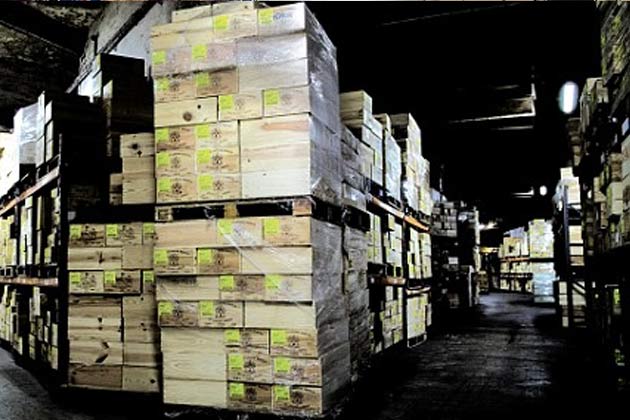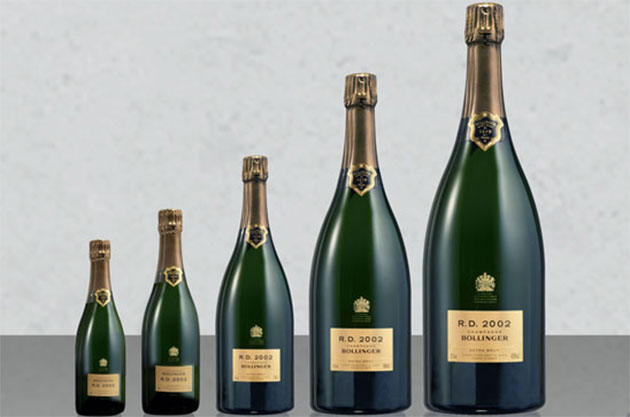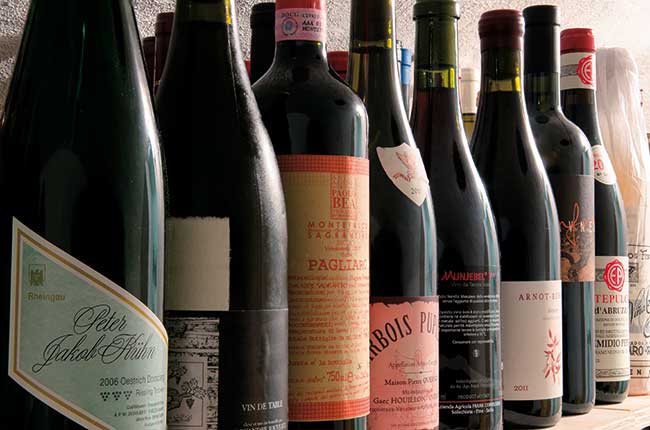What is the point of heavy wine bottles? Not larger format, like magnums, but the 750ml bruiser bottle that appears to weigh nearly as much when empty as full and which defies you to pour using a single hand...
Should we boycott heavy wine bottles? – Ask Decanter
This article is edited from the original ‘Burning Question’ piece published in Decanter magazine in 2014. Quotes below are from 2014. It was written by Chris Mercer and has been edited for Decanter.com by Eleanor Douglas.
Such bottles also have diva tendencies in cellars, often requiring special racks, and there are questions over how environmentally friendly they are.
Ian Smith, commercial director at UK restaurant, bar and retail supplier Matthew Clark, believes that more consumers are becoming aware of environmental issues but that there is a stronger cost argument for cutting bottle weight.
‘Leisure spending is under pressure and our restaurant customers are looking to keep wine prices down while maintaining margins, as operating costs increase.
‘Heavier-weight bottles are expensive and increase the price on a restaurant list significantly.’
But he said many drinkers still judge quality by bottle weight, which means lighter bottles have an image problem in the world of fine dining in particular.
‘With the above in mind, Matthew Clark continues to work on the presentation of lower-weight, lower-cost, environmentally friendly bottles,’ he said.
Tatiana Fokina, CEO of luxury wine retailer Hedonism in central London, said that there’s nothing wrong with consumers liking a bottle ‘with presence’ on the table.
‘With so many wines available, the strength of a good bottle and label is often a winning formula. Wine is quite a tactile product and people like nice thick glass; it has a feel of history and heritage.
‘While the heaviest of bottles can be a little ridiculous, we believe these bottles are certainly around to stay for a while yet.’
However, Chris Hatcher, chief winemaker at Wolf Blass, owned by Treasury Wine Estates, said that the extra cost of heavy bottles might be money better spent on the wine itself at some estates.
‘A premium wine needs a premium package, but with some of those types of bottle the wine doesn’t always live up to [the image],’ he said.
‘The wine is the most important thing. I tell our accounts department that if it’s a question of [cutting] cost, it has to be the packaging before the wine.’
Give us your views in the comments section below.
Answers were taken from the Burning Question in Decanter magazine, December 2014.
-
Read more notes and queries every month in Decanter magazine. Subscribe to the latest issue here
-
Got a question for Decanter’s experts? Email us: editor@decanter.com or on social media with #askDecanter
More questions answered:

Wine shipping costs – ask Decanter
Is it more expensive to ship wine from further away?

Should you put ice cubes in wine?
What to do if your wine isn’t chilled enough...

Buying Champagne methuselahs – ask Decanter
How do I go about buying a methuselah of Champagne...?

What is whole bunch fermentation? Ask Decanter
What does it mean for the wine...?

High alcohol wines – ask Decanter
Do higher alcohol levels in wines impact on cellaring potential and drinking windows?

Do crémants age as well as Champagne? – Ask Decanter
Does Crémant de Bourgogne age as well as Champagne?







